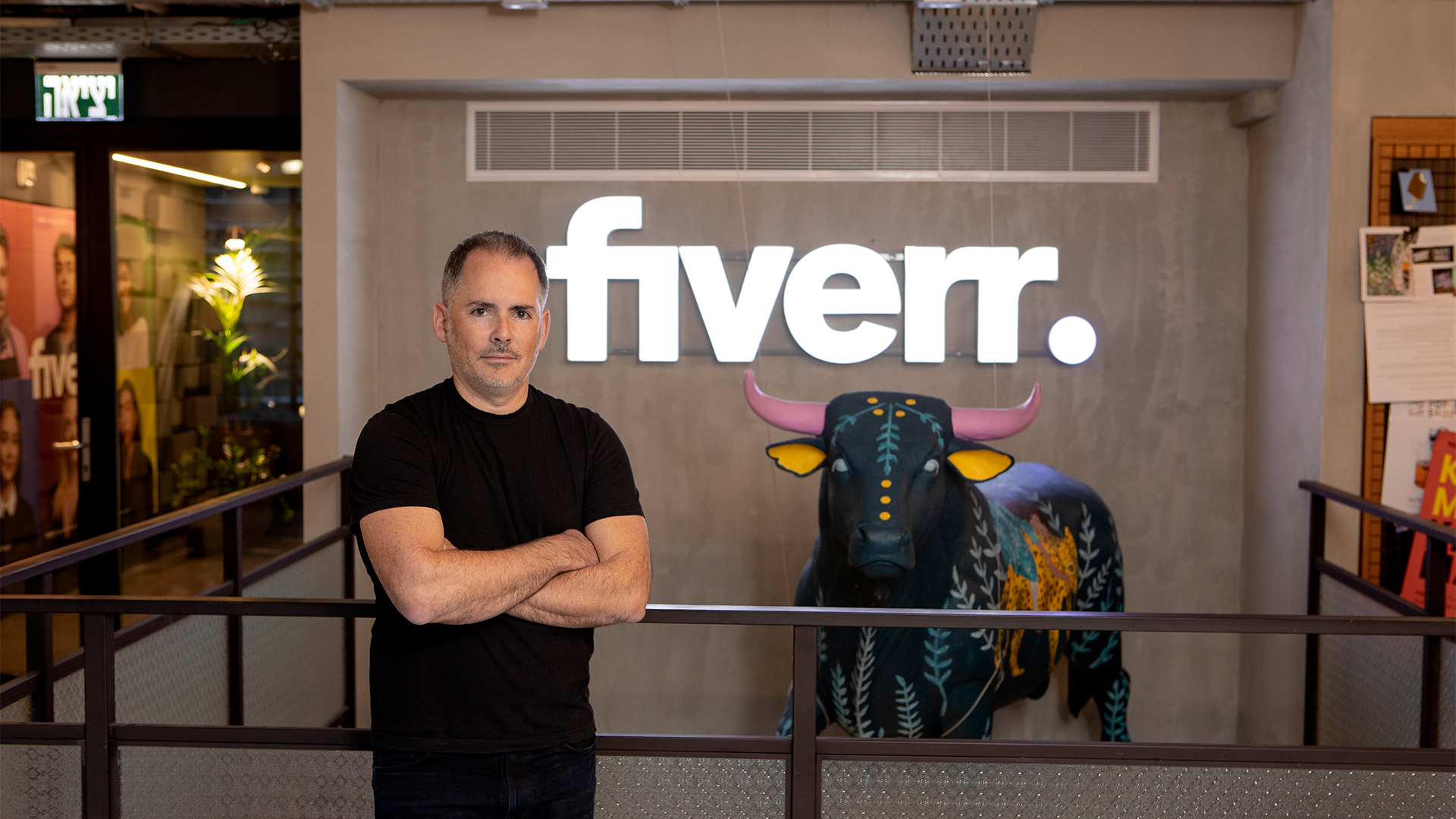The tech industry needs to unionise now more than ever
Companies hoping to boost productivity should embrace unionisation so employees aren’t constantly anxious over job security or childcare arrangements


In today’s increasingly volatile business landscape, tech workers cannot rely on old norms of employer loyalty for job security. The hard fact is job cuts have arrived, and will continue, as the sector enters a profound downturn.
We’ve already seen Amazon and Salesforce announce 26,000 job losses between them alongside reports Vodafone is mulling layoffs as part of wider cost-saving measures, and Microsoft cut 10,000 employees in a cost saving measure. This is only the beginning, with other major corporations plotting cuts as they cope with the economic turbulence of 2023.
Unions, meanwhile, offer workers a means to collectively bargain with employers and get pay and retention assurances in writing rather than as statements of goodwill. In a sector that’s now regularly seeing big names cut between 10 – 50% of their workforces, employers will struggle to build trust with workers unless they are willing to back it up with agreements. Unions can play a key role in this.
The current state of the tech sector is a far cry from this. In the United States, 33.9% of public sector workers were unionised in 2021, according to the Bureau of Labor Statistics, versus 6.1% of private sector workers. Those working in professional and technical services had lower rates still (1.2%).
There are a number of reasons why union membership among tech employees has been slow to grow, and has always lagged behind the private sector average. Perhaps the most obvious is the tech industry has long been considered one of the most lucrative to work in, and therefore in no need for organised action.
Silicon Valley software engineers can make more than $1 million per year, and cities such as San Francisco, Seattle and New York offer median yearly compensation above $180,000. Even in roles that aren’t as well-compensated, many tech workers see potential in themselves to helm the next big startup in their sector given time, and may rationalise poor working conditions as a necessary sacrifice on the way to greatness.
Although union membership in tech is low worldwide, and union representation in the UK tech sector almost non-existent, workers in the EU and UK enjoy a far wider range of rights than their American counterparts. These include maternity leave and sick pay, underlining the benefits counterparts in the US should be organising to demand.
Get the ITPro daily newsletter
Sign up today and you will receive a free copy of our Future Focus 2025 report - the leading guidance on AI, cybersecurity and other IT challenges as per 700+ senior executives
In this way, employees would be shielded against the kind of sudden upheaval that a merger or acquisition may bring to their job. The biggest example in recent memory is Elon Musk’s acquisition of Twitter, which saw the CEO fire half its employees, demand the rest agree to harsh new working conditions, and slashed existing benefits such as permanent work from home or child care.
Companies looking to boost productivity should embrace unionisation in accordance with their principles, in a win-win for management and employees. It’s unsurprising that employees can focus on their work more if they aren’t worrying about job security or childcare arrangements and, with proper union protections in place, they can receive it in confidence through union-negotiated, binding work agreements.
RELATED RESOURCE

What 2023 will mean for the industry
What do most IT decision makers really think will be the important trends and challenges in the coming year?
Microsoft has taken the right approach with its decision to accept ZeniMax workers’ unionisation in anticipation of “good faith” negotiations. It should be that just as a company’s C- suite works to protect profits and shareholder interests, workers are allowed to protect their rights and the value of their labour.
The received wisdom is that younger employees crave meaning above raw progression in their roles. While this is an important discussion to have, executives would do well to consider the meaning inherent to unionised workforces and the self-maintaining sense of community they can achieve collectively.
A modern coalition of tech unions could champion hybrid work – in fact, tech workers are arguably some of the best situated to embrace a modern union structure and lead structural reform that other sectors could look to as an example. It could also do away with destructive workplace arrangements that have become too common in developer environments.
‘Crunch’, a term that developers use to describe the punishing overtime that many companies enforce in the weeks leading up to a product’s general release, has always been unsustainable. Like the six-day weeks of the early 20th century, this practice should be consigned to history in favour of fair conditions that factor in worker satisfaction. In the same way that unions won workers the weekend, they can win improved office hours, pay and equitable conditions.
Rejecting unionisation is pure short-termism, and efforts to suppress unionisation of one’s workers are the calling card of a company that never plans to provide its employees with living wages or meaningful career opportunities. The time for unchecked expansion at the expense of tech workers should end, in favour of an equitable future shaped as much by those contributing their labour to big tech as by the household names. Companies looking to be on the right side of history, like Microsoft and others, will embrace unionisation for a more secure, happy, and productive workforce.

Rory Bathgate is Features and Multimedia Editor at ITPro, overseeing all in-depth content and case studies. He can also be found co-hosting the ITPro Podcast with Jane McCallion, swapping a keyboard for a microphone to discuss the latest learnings with thought leaders from across the tech sector.
In his free time, Rory enjoys photography, video editing, and good science fiction. After graduating from the University of Kent with a BA in English and American Literature, Rory undertook an MA in Eighteenth-Century Studies at King’s College London. He joined ITPro in 2022 as a graduate, following four years in student journalism. You can contact Rory at rory.bathgate@futurenet.com or on LinkedIn.
-
 ‘AI is coming for your jobs. It’s coming for my job too’: Fiverr CEO urges staff to upskill in AI or be left behind
‘AI is coming for your jobs. It’s coming for my job too’: Fiverr CEO urges staff to upskill in AI or be left behindNews The latest in a string of AI skills warnings has urged staff to begin preparing for the worst
By Ross Kelly Published
-
 Mandiant CTO says foreign AI models may have improved trust in US developers
Mandiant CTO says foreign AI models may have improved trust in US developersNews Concerns about enterprise AI deployments have faded due to greater understanding of the technology and negative examples in the international community, according to Mandiant CTO Charles Carmakal.
By Rory Bathgate Published
-
 Put AI to work for talent management
Put AI to work for talent managementWhitepaper Change the way we define jobs and the skills required to support business and employee needs
By ITPro Published
-
 The future of HR and talent in the age of generative AI
The future of HR and talent in the age of generative AIWebinar Transform your people management, support your workforce, and optimize your HR strategy
By ITPro Published
-
 Digital experience has to be at the heart of employers’ recruitment drives
Digital experience has to be at the heart of employers’ recruitment drivesSponsored As the Great Resignation rolls on, businesses need to live up to candidates expectations or risk losing out on top talent
By James Harvey Published
-
 Little is being done to address the tech industry's racial hiring bias, report
Little is being done to address the tech industry's racial hiring bias, reportNews Non-white individuals are far less likely to be offered an interview compared to other applicant groups, research shows
By Ross Kelly Published
-
 Can the CBI survive its misconduct scandal?
Can the CBI survive its misconduct scandal?News The industry trade body has been embroiled in one of the largest scandals in British business history in recent weeks
By Ross Kelly Published
-
 How to choose an HR system
How to choose an HR systemWhitepaper What IT leaders need to know
By ITPro Published
-
 Amazon staff reportedly launch campaign to reverse 'shock' worldwide return to office plans
Amazon staff reportedly launch campaign to reverse 'shock' worldwide return to office plansNews An internal petition calls for CEO Andy Jassy to roll back planned requirements for corporate staff to return on a three-day basis
By Rory Bathgate Published
-
 The best free people search sites
The best free people search sitesBest With the best free people search sites, you can fact-check someone’s identity by confirming their name, location, and phone number
By Ioana Andrei Last updated